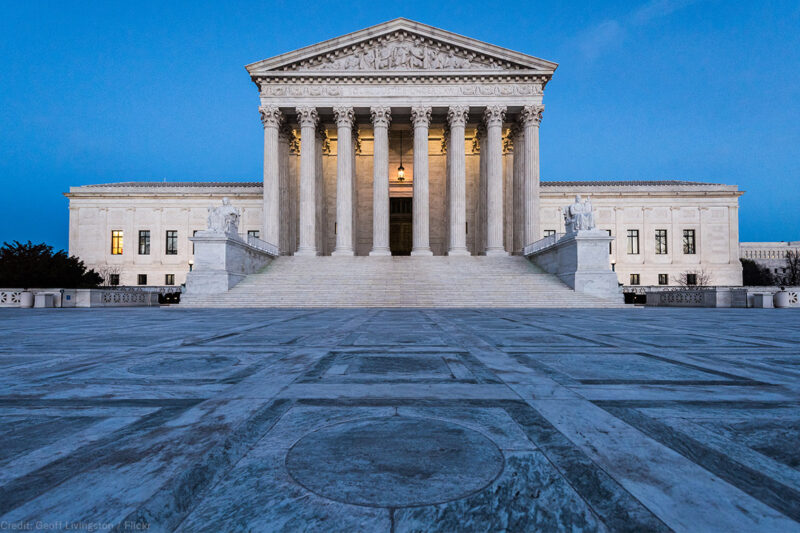The Supreme Court Is Considering Whether the Government Can Dodge the First Amendment by Outsourcing Its Power


The First Amendment bars the government from censoring speech that it doesn’t like. That rule also goes for a private organization that takes on a government role. But when exactly is an organization considered a stand-in for the government? The Supreme Court will soon hear a case to decide.
Before smartphones, the internet, and digital cameras, it wasn’t easy to get your videos in front of a mass audience. But in some places, there was one surefire way: public access cable TV.
For decades, various state and local governments have required cable companies to set aside channels for public use. These channels have become tools for creative exploration and provide artists, educators, and activists a platform to speak directly to their communities. They’re a home for everything from talk shows to music videos to stream-of-consciousness rants on any subject you can think of.
As New York City is a hub for artistic self-expression, it makes sense that its “off-off-off-off Broadway” has reflected the creative pulse of the city. A nonprofit called Manhattan Neighborhood Network (MNN) operates the public access channels for the borough. By law, it must broadcast all legal content that it gets in the order received.
Several years ago, New York artists and activists DeeDee Halleck and Jesus Papoleto Melendez produced a video and submitted it to MNN, which aired it once but then banned it because it supposedly threatened the guards who work at MNN’s building. The network also suspended Halleck for one year and Melendez for life from submitting content, so they sued MNN for violating their free speech rights.
Not coincidentally, Halleck and Melendez, while strong supporters of public access channels, have long been vocal critics of MNN. They pushed back against its decision to give huge raises to its executives while at the same time cutting off funding for media grants to the community. And “The 1% Visits El Barrio,” the video they sought to air, criticized the network for its refusal to allow them entry to the opening of its new community center.
It is well established that the government cannot censor protected speech, a principle especially important when that speech criticizes the government. But, in general, a private TV network can run or not run whatever content it likes.
So which rule does MNN fall under?
The “state action doctrine” asks whether conduct can be fairly attributed to the state or to a private party. As we argue in our friend-of-the-court brief supporting Halleck and Melendez, in this case, MNN’s broadcast decisions are state action. New York City has implemented its very specific vision for public access channels through MNN. Because the city’s first-come, first-served policy leaves MNN no room to decide what to broadcast, or even in what order to broadcast videos, it has made the network a virtual arm of the government. That means that the First Amendment applies to MNN, and it cannot pick and choose videos based on what’s in them.
The government can’t shirk its constitutional responsibilities by delegating power to private entities. Nor can it avoid its constitutional obligations by creating rules or entering contracts that leave a private entity with essentially no decisions to make at all. The First Amendment would mean little if the government could simply avoid it by outsourcing its power to private entities to decide what is worthy of public discourse and what must be silenced.


